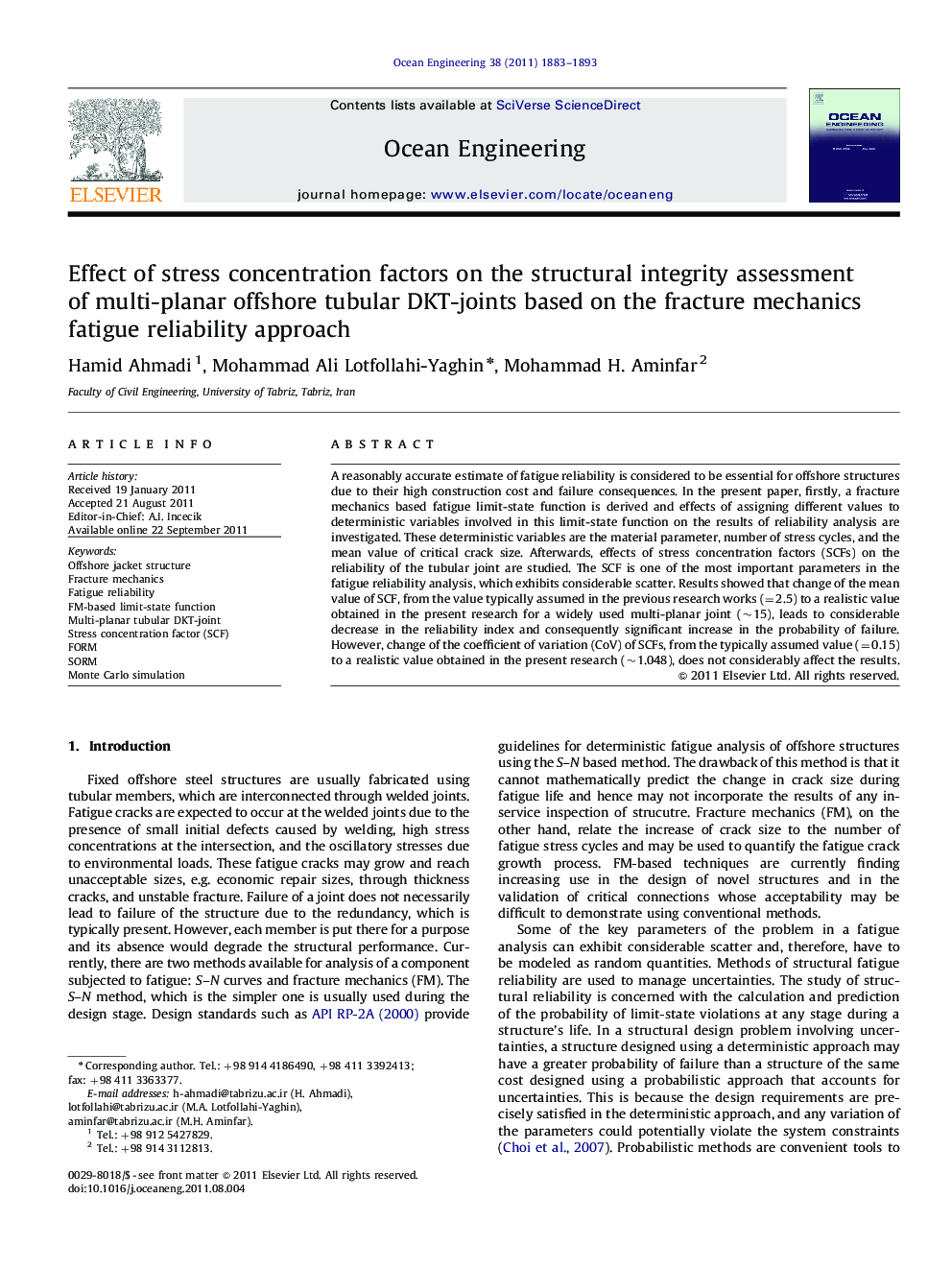| Article ID | Journal | Published Year | Pages | File Type |
|---|---|---|---|---|
| 1726353 | Ocean Engineering | 2011 | 11 Pages |
A reasonably accurate estimate of fatigue reliability is considered to be essential for offshore structures due to their high construction cost and failure consequences. In the present paper, firstly, a fracture mechanics based fatigue limit-state function is derived and effects of assigning different values to deterministic variables involved in this limit-state function on the results of reliability analysis are investigated. These deterministic variables are the material parameter, number of stress cycles, and the mean value of critical crack size. Afterwards, effects of stress concentration factors (SCFs) on the reliability of the tubular joint are studied. The SCF is one of the most important parameters in the fatigue reliability analysis, which exhibits considerable scatter. Results showed that change of the mean value of SCF, from the value typically assumed in the previous research works (=2.5) to a realistic value obtained in the present research for a widely used multi-planar joint (∼15), leads to considerable decrease in the reliability index and consequently significant increase in the probability of failure. However, change of the coefficient of variation (CoV) of SCFs, from the typically assumed value (=0.15) to a realistic value obtained in the present research (∼1.048), does not considerably affect the results.
